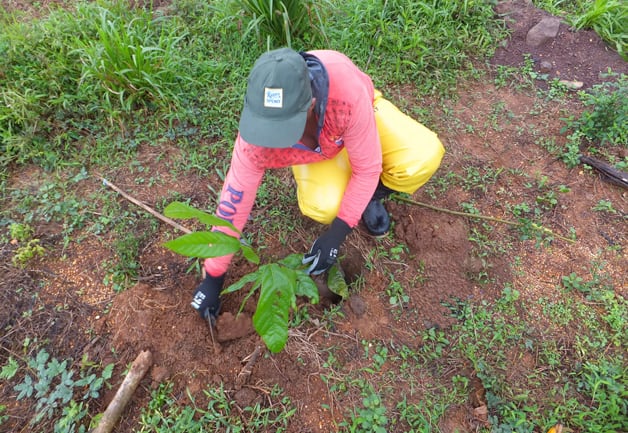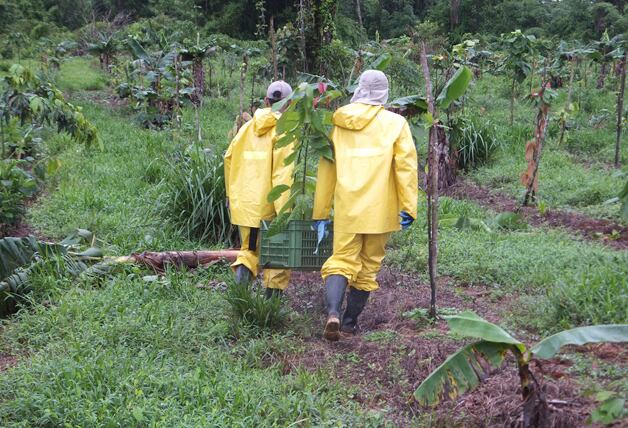The company announced plans to buy 2,000 hectares of land in Nicaragua last year, but recently upped the surface area to 2,500 hectares.
Large chocolate companies typically source cocoa from West Africa, where 70% of the world’s cocoa is grown, mostly on small family-owned farms.
“You might call it a new chapter,” Ritter public relations manager Petra Fix told ConfectioneryNews. “We are a production company going back to the beginning of our sourcing.”
“There is risk involved but we believe this is the right way to gain independence.”

Ritter starting from scratch
Ritter’s plantation will eventually be home to 1m cocoa plants. It has begun to build the first roads and has planted the first 200 hectares.
“The land we bought has not been used before so we are starting from scratch. There is no infrastructure or roads,” said Fix.
The company chose Nicaragua because it had a strong knowledge of its climate for growing cocoa after working with farmers in the country for over 25 years.
Ritter currently sources a very small percentage of its cocoa from the country. By 2017, it expects to be using its first cocoa beans from the plantation and will eventually source 30% of its cocoa supply from its own land.
Fix said that changing weather posed a risk, but the company will have flexibility to source from other regions for 70% of its supply.
Bad news for smallholder farmers?

Asked whether industrialization of cocoa growing was bad news for smallholder farmers in West Africa, Fix said: “It’s not a risk someone should worry about." “We are still supporting them.”
She said the Nicaragua plantation would give Ritter a stronger knowledge of cocoa growing and best practices would be passed on to farmers in other regions.
Ritter is planting other crops alongside the cacao trees such as bananas. “It’s called integrated farming which is to make sure we support the biodiversity of the grounds,” said Fix.
The company eventually plans to obtain certification for the plantation from UTZ Certified or Rainforest Alliance.
Could other firms follow suit?
Jos de Loor, president of Cargill Cocoa & Chocolate, said that chocolate and cocoa processing companies could be enticed to source from private companies operating plantations or to own plantations, but only if cocoa became costlier.
“If the price of cocoa doubled there would be an incentive, and if people know that it would last for a certain period of time there is in an incentive to do this on a bigger scale. And to a certain extent we see that happening in South America.”
‘Dream scenario’
Andy Harner, global cocoa vice president at Mars Chocolate, said that although cocoa farms may become larger he said large-scale industrial farming was some way off.
"It's a scenario that's so far away from where we are today that it's sort of like a dream scenario. We have a very complicated supply chain today made up of millions of smallholders.
“…You'll see rubber plantations, palm plantations but cocoa today hasn't lent itself to that and probably without some significant changes it's not going to for the near future.”
